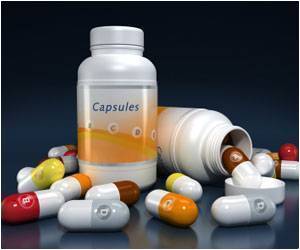As a result, current treatments for AIRDs are primarily designed to suppress the symptoms (inflammation) but are ‘low target’ meaning the drugs may also have unintended side effects. In this regard, AIRDs drugs often cause changes to cell metabolism (such as lipid metabolism) and function, putting patients at greater risk of co-morbidities such as cardiovascular disease (CVD).
Lead author Dr. George Robinson said: “While the mechanisms that cause rheumatic diseases are ill-defined, some recent research indicates cell metabolism may play an important role in triggering or worsening their onset or affect.
“In this review, we, therefore, sought to understand the effect of both conventional and emerging therapies on lipid metabolism in patients with AIRDs.”
For the study, published in the Journal of Clinical Investigation, researchers carried out a literature review of more than 200 studies to assess and interpret what is known regarding the on-target/off-target (adverse) effects and mechanisms of action of current AIRD therapies on lipid metabolism, immune cell function, and CVD risk.
Explaining the findings, Dr. Robinson said: “Our review found that current AIRD therapies can both improve or worsen lipid metabolism, and either of these changes could cause inflammation and increased CVD risk.
“Many conventional drugs also require cell metabolism for their conversion into therapeutically beneficial products; however, drug metabolism often involves the additional formation of toxic by-products, and rates of drug metabolism can be different between patients.”
The review noted that better control of inflammation using optimal combinations of immunosuppressive treatments could lead to an improved metabolic/lipid profile in AIRDs.
However, it also revealed many studies have shown that lipid-lowering drugs (like statins) are not sufficient to reduce CVD risk in some AIRDs, potentially because they cannot completely restore the anti-inflammatory properties
Dr. Robinson added: “The unfavorable off-target adverse effects of current therapies used to treat AIRDs provides an opportunity for optimal combination co-therapies targeting lipid metabolism that could reduce immune complications and potential increased CVD risk in patients.
“New therapeutic technologies and research have also highlighted alternative metabolic pathways that can be more specifically targeted to reduce inflammation but also to prevent undesirable off-target metabolic consequences of conventional anti-inflammatory therapies.”
Medindia



